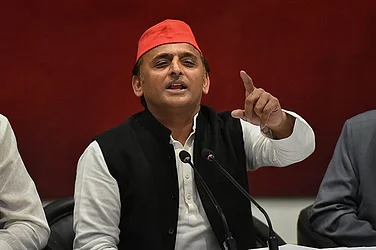The Supreme Court on Monday acquitted three men accused in the brutal murder and gangrape of a 19-year-old girl in Delhi's Chhawla area, eight years after the incident occurred in 2012. The three men were convicted by a trial court and sentenced to death.
A bench of Chief Justice of India U U Lalit and Justices S Ravindra Bhat and Bela M Trivedi, while pronouncing the verdict, said that the three men --- Rahul, Ravi Kumar and Vinod alias Chhotu --- stated that the prosecution, whose case rested on circumstantial evidence, failed to prove it. Acquitting the men, the Bench observed that they must be set free if not required in any other case.
The victim's parents were reported to be protesting the SC's verdict and the victim's father said the apex court has "let them down" and they have lost faith in the judiciary after fighting for over 11 years.
"We have not just lost the battle but also the will to live," said the mother of the victim, reported Millenium Post.
As per the prosecution case, the trio kidnapped the girl in a red Tata Indica car near Hanuman Chowk, Qutub Vihar, Chhawla on February 9, 2012, before raping and killing her. The body was found three days later.
Highlighting lapses in the judgment, the Nech observed, "As demonstrated… the evidence with regard to the arrest of the appellants-accused, their identification, discoveries and recoveries of the incriminating articles, identity of the Indica car, the seizures and sealing of the articles and collection of samples, the medical and scientific evidence, the report of DNA profiling, the evidence with regard to the CDRs (call data records) etc were not proved by the prosecution by leading, cogent, clinching and clear evidence, much less unerringly pointing the guilt of the accused.”
It further said, "The prosecution has to bring home the charges levelled against them beyond a reasonable doubt, which the prosecution has failed to do in the instant case. Resultantly, the court is left with no alternative but to acquit the accused, though involved in a very heinous crime."
The court further observed that the accused were deprived of their right of having a fair trial apart from the fact that the truth also could not be elicited by the trial court.
The apex court added that it might be true that if the accused involved in the heinous crime go unpunished or are acquitted, a kind of agony and frustration may be caused to society in general and to the family of the victim in particular, however, the law does not permit the courts to punish the accused on the basis of moral conviction or on suspicion alone.
The SC added that it “is constrained to make these observations as the court has noticed many glaring lapses having occurred during the course of the trial”.
In 2014, a trial court awarded death penalty to the three accused, terming the case "rarest-of-rare". The judgment was later upheld by the Delhi High Court.
What happened on February 9, 2012?
The woman, who worked in Gurugram's Cyber City, was returning home at night when the three men abducted her in a car and she was raped.
When she didn't return home, her parents lodged a missing person report, the prosecution said, adding that the woman's mutilated and decomposed body was found in a village in Haryana's Rewari.
According to the prosecution, the police found multiple injuries on the woman's body. Further investigation and autopsy revealed she was attacked with car tools, glass bottles, metal objects, and other weapons.


























